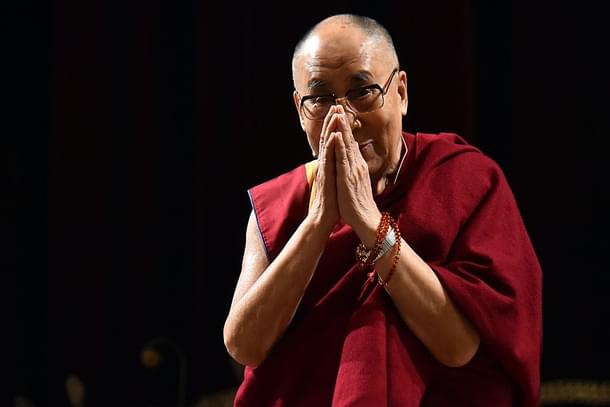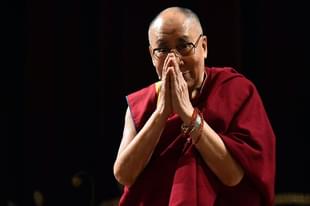Insta
US Govt Favours Tibetan System To Choose Dalai Lama’s Successor; China Claims Choosing Successor Is Their Right
IANS
Oct 28, 2019, 02:22 PM | Updated 02:22 PM IST
Save & read from anywhere!
Bookmark stories for easy access on any device or the Swarajya app.


US Ambassador at large for International Religious Freedom, Samuel D. Brownback, called on the Dalai Lama at his official palace Dharamshala on Monday (28 October) and favoured that successor to the spiritual leader belongs to the Tibetan Buddhist system.
During the two-day visit, which began on Sunday (27 October), the Ambassador met high-ranking officials of Central Tibetan Administration (CTA), including 'Prime Minister' Lobsang Sangay.
The Ambassador was accompanied by three members from the US State Department's Office of International Religious Freedom and two from the US Embassy in New Delhi.
The Dalai Lama, who believes in the "middle-path" policy that advocates "greater autonomy" for the people in Tibet, is viewed by the Chinese as a hostile element who is bent on splitting Tibet from China.
Speaking to CTA-run Tibet News Bureau, Brownback said the purpose of his visit is to send a clear message that "the United States government supports the Tibetan people, the Dalai Lama and that the role of picking a successor to the Dalai Lama belongs to the Tibetan Buddhist system, the Dalai Lama and other Tibetan Buddhist leaders".
"It does not belong to anybody else, not any government or any entity," he said.
"I want to express clearly the US government supports the Dalai Lama and supports the succession of the Dalai Lama to be done by the Tibetan Buddhist leadership."
Prior to the meeting with Sangay on Sunday (27 October), Brownback met a group of survivors of religious persecution who had recently escaped from Tibet.
In the hour-long meeting, the Ambassador asked questions to each of the survivors and listened to their accounts.
He thanked them for their courage and expressed his full support and earnest efforts towards advancing religious freedom inside Tibet, a post on the CTA website said.
"We believe in religious freedom; the United States strongly supports religious freedom. We believe people all over the world deserves this right and they should be able to practice their peacefully and freely. Unfortunately Tibetans aren't allowed to practise their faith freely in Tibet and they have to get out to India and other places to practise their faith. So I was hearing with some people who had recently left and all for the reason of wanting to practice their faith freely," the post quoting the Ambassador added.
This is Brownback's second visit to Dharamsala this year. Last time he called on the elderly Buddhist spiritual leader in March.
The Dalai Lama lives in exile along with some 140,000 Tibetans, over 100,000 of them in India. Over six million Tibetans live in Tibet.
The Tibetan-in-exile administration is based in this northern Indian hill town, but is not recognised by any country.
(This story has been published from a wire agency feed without modifications to the text. Only the headline has been changed.)





